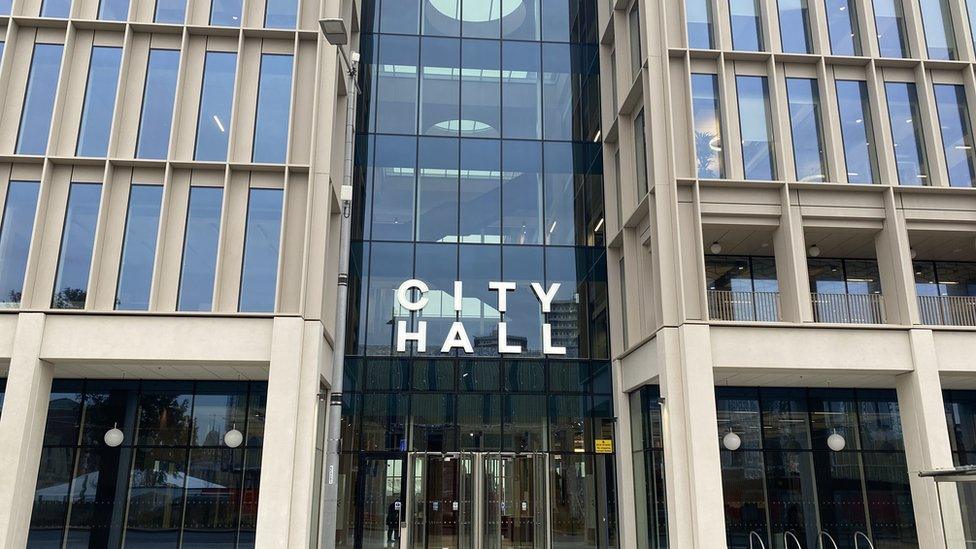Sunderland raises council tax by 5%
- Published

Council leader Graeme Miller said "difficult decisions" had to be made to deliver a balanced budget
Residents in Sunderland will see their council tax bills increase by 4.99%.
On Wednesday, the city council signed off budget plans which will come into force from April.
Council leader Graeme Miller, said "difficult decisions" had to be made to deliver a balanced budget.
The authority's three political group leaders had previously written to the government outlining their concerns over budgets and spending pressures.
The Local Democracy Reporting Service said the rise is made up of a 2.99 per cent rise in core council tax for day-to-day services and a two per cent government levy earmarked for adult social care services in the city.
Proposed cuts are understood to include staffing reviews where vacant posts are not filled, reviews of fees and charges and reductions in some service expenditure.
'Protecting residents'
Mr Miller said the city faced another "challenging year" due to cost pressures and previous cuts, with all services "feeling the squeeze".
"We have worked very hard to ensure this is a positive budget which allows us to continue with our ambitious social and economic regeneration plans for the city, whilst ensuring we continue to protect and support our residents most in need," he added.
The tax rise for council services includes an increase of £1.05 per week for a Band A property - which represents the majority of Sunderland households - and a rise of £1.57 per week for an average Band D property.
Final council tax bills on Wearside include charges collected on behalf of Tyne and Wear Fire and Rescue Authority and the Northumbria Police and Crime Commissioner, with both precepts increasing this year.
Precepts are the amount councils charge taxpayers to fund their budgets.
Residents living within the Hetton Town Council parish area would also see a precept added to their council tax bills.
Amendments to the budget put forward by the Conservative group and separate proposals by the Lib Dems were turned down
A report to councillors said the council tax rise is aimed to "prevent further cuts to front-line services, enable some essential investment in key priorities and minimise the use of reserves".
The Labour group's budget was eventually approved by 42 votes to 22.

Follow BBC Sunderland on Facebook, external, X (formerly Twitter), , externaland Instagram, external. Send your story ideas to northeastandcumbria@bbc.co.uk, external.